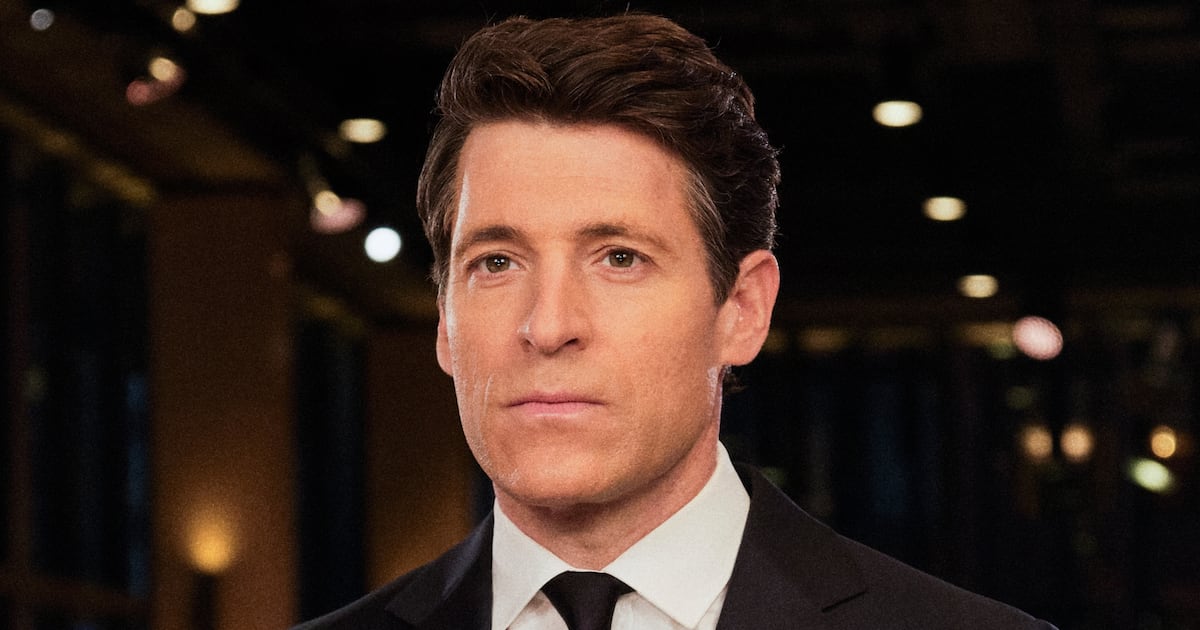There are various ways to describe the civil war rising inside the Republican Party: insiders versus outsiders, pragmatists versus true-believers, establishment versus Tea Party. Here’s another: Bill O’Reilly conservatives versus Rush Limbaugh conservatives.

Last week, the two media titans clashed after O’Reilly accused opponents of gay marriage of lacking “compelling argument[s]” and merely “thump[ing] the Bible.” Limbaugh responded by saying that conservative Christians “were sort of marginalized” on O’Reilly’s show. On the surface, the scuffle merely reflected differing opinions about the arguments deployed last week at the Supreme Court. But in reality, it reflected a different view of conservatism itself.
O’Reilly is a conservative populist, which is to say, he only champions those conservative viewpoints that he believes enjoy mass appeal. His evolution on gay marriage—as helpfully chronicled by New York magazine’s Dan Amira—illustrates the point. While O’Reilly’s own views have shifted, what has remained constant is his tendency to justify those views by reference to the popular will. In 2006 O’Reilly said he opposed gay marriage because “it is clear that most Americans want heterosexual marriage to maintain its special place … Traditional marriage is widely seen as a social stabilizer.” In 2009 he again phrased his opposition in terms of public opinion: “You don’t do it [pass gay marriage] particularly if people in California … don’t want it, they think that the heterosexuality is a societal stabilizer.” But by linking his own notions of social stability to those of the public at large, O’Reilly gave himself room to shift. By May of last year he was declaring that “individual states should decide the question.” And last week he said he supported civil unions, while on gay marriage, “I don’t feel that strongly about it one way or another. I think the states should do it.”
Intellectually, this doesn’t make much sense. There’s a comprehensible argument in support of both civil unions and gay marriage. Or against both. Or even in support of one but not the other. But intellectually, it makes little sense to support civil unions while remaining agnostic on the more symbolically and culturally important question of gay marriage itself. Yet for O’Reilly it makes perfect sense. He opposed gay marriage when he believed the vast majority of Americans did and now backs civil unions because he thinks the vast majority of Americans do. He’s currently undecided on gay marriage because public opinion is split.
On other issues, too, O’Reilly evolves with the public, singling out the extreme left for ridicule while taking care not to challenge liberal views that have become mainstream. He vociferously supported invading Iraq, but unlike many right-wing intellectuals and former Bush officials, apologized for doing so once Americans turned against the war. He then blamed the Bush administration for screwing things up; blamed Iraqis themselves, whom he called “primitive” and “prehistoric”; and continued to slam “the anti-war crew,” which “is now fully invested in defeat.” In other words, he disassociated his trademark hypernationalism, which remained popular, from the “neoconservative” project of militarily transforming the Middle East, which no longer was.
It’s the same on immigration, where O’Reilly has historically taken a hard line. In a 2006 column, for instance, he proposed deploying the National Guard to America’s southern border, a view that he noted enjoyed 75 percent popular support. He also warned darkly that “left-wing organizations” wanted “as many foreign nationals as possible to become U.S. citizens” so as to overthrow “the white power structure that currently runs America.” But last fall, after Mitt Romney’s defeat highlighted the political perils of demonizing illegal immigrants, O’Reilly softened his tone, calling for “some kind of policy that’s fair and doesn’t punish innocent people whose parents dragged them here.”
On gun control, O’Reilly has taken a similar tack, caricaturing “the left,” which “wants the government to have all the power and the individual to have no power,” but adding that “there has to be some kind of middle ground. Does anyone need an AR-15?” O’Reilly defends capitalism, but is open enough to bashing unpopular corporations that fellow Fox host Neil Cavuto in 2008 accused him of “push[ing] ... populist nonsense.” On abortion, O’Reilly has railed against advocates of “partial birth” abortion and opponents of parental notification laws, positions he associates with “the radical left.” But as he explained in a 2007 column excoriating a Kansas doctor who performed late-term abortions, “this isn’t about a women’s right to choose ... This is about late term abortions.” Republicans, O’Reilly declared after Romney’s loss, “need to show that they’re not trying to take away birth-control pills.”
The person who did more than anyone else to make birth control an issue in 2012, of course, was Rush Limbaugh, who called Georgetown law student Sandra Fluke a “slut” and a “prostitute” after she testified in support of requiring insurance companies to cover contraception. O’Reilly would never have done that, not because he refrains from savaging obscure individuals with whom he disagrees, but because he never goes after a sympathetic target. Limbaugh and O’Reilly both see themselves as four-star generals in America’s culture war. The difference is that Limbaugh launches kamikaze missions. O’Reilly never yells charge unless he has the infantry massed on his side.
You can see the difference in the way the two men respond to people perceived as right-wing extremists. Limbaugh embraces them; O’Reilly disses them. After 2008 O’Reilly peddled nasty reports from former John McCain staffers about Sarah Palin. This enraged Limbaugh, who asked, “Why’s Fox allowing itself to be used like this?” and defended Palin as “the one person in this campaign that brought the Republican base back into the fold, that fired them up, that inspired them.” Similarly, this February, O’Reilly criticized Michele Bachmann for claiming that President Obama has been living extravagantly in the White House. Calling Bachmann’s charges “trivial,” O’Reilly used her to triangulate between liberals and conservatives, declaring that “it’s long past time for partisans, on both the right and the left, to cut the nonsense and look at things clearly.”
It’s hard to imagine Limbaugh going in for this sensible center stuff, because he’s more comfortable championing a brand of conservatism that many—even most—Americans oppose. Unlike O’Reilly, who has responded to Romney’s defeat by softening his views on gay rights and immigration, Limbaugh has mocked the claim that the GOP “can alienate their evangelical base and replace those voters by becoming more hip, modern, with it ... They are not going to be able to do that,” because pro–gay rights and pro-immigration voters will vote Democratic no matter what.
O’Reilly and Limbaugh are both conservative; they both idealize an older, pre-lapsarian America that they believe leftists want to destroy in the name of progress. The difference is that Limbaugh’s conservative vision is more static and more personal. For O’Reilly, traditional morality is not an abstract, coherent set of beliefs; it’s the folk wisdom of ordinary people at any given moment, and it can change.
Like Reagan, O’Reilly has a gift for quietly making peace with progressive advances he formerly opposed while excoriating (and often caricaturing) those leftist innovations that can still be dismissed as fringe. If I were a GOP presidential aspirant, I’d watch O’Reilly closely over the next few years, because the Republican candidate who best articulates his brand of conservatism will be the candidate best able to regain the White House in 2016.






